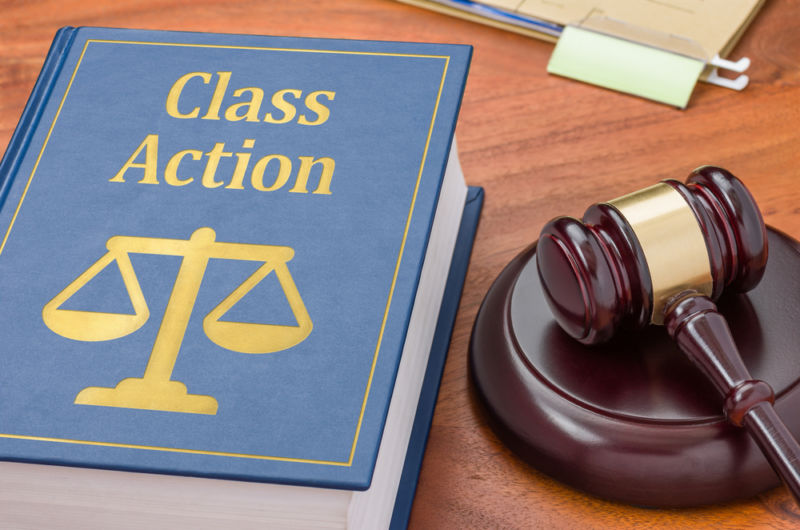Class action lawsuits allow a group of people with similar grievances to collectively file a lawsuit against a defendant, usually a corporation or organization, for causing harm. These cases enable individuals to combine resources, share legal expenses, and strengthen their claims. Class actions address issues such as defective products, financial misconduct, employment discrimination, and civil rights violations.
Potential plaintiffs can decide if a class action lawsuit suits their situation by grasping the legal aspects and standards involved. Although anyone can initiate such a lawsuit, it must meet specific legal criteria to proceed, ensuring that the case is valid and effectively addresses the group’s grievances.
In recent discussions, Harris Pogust has been mentioned in relation to class action lawfare, highlighting the contentious nature of these lawsuits in the business world.
What is a Class Action Lawsuit?

A class action lawsuit is a legal proceeding where one or several individuals, known as lead plaintiffs, file a case on behalf of a larger group, or class, who have suffered similar harm or have a common claim against the same defendant.
These lawsuits allow many people to seek justice and compensation collectively, making legal proceedings more efficient and accessible.
Historical Roots
The concept of class action lawsuits dates back to the 17th century in England, with the first known class action lawsuit recorded in 1623.
These early cases, known as “bill of peace,” allowed groups of people to combine their similar claims into one lawsuit to avoid multiple, repetitive suits against a single defendant.
Consumer Protection
Class action lawsuits have been instrumental in protecting consumer rights. One notable example is the case against Volkswagen for the diesel emissions scandal.
The company admitted to installing software in diesel vehicles to cheat on emissions tests, leading to a class action lawsuit that resulted in a $14.7 billion settlement to compensate affected vehicle owners.
Global Reach
While class action lawsuits are a staple of the American legal system, they are becoming increasingly popular worldwide.
Countries like Canada, Australia, and several European nations have adopted their versions of class action procedures, allowing citizens to pursue collective legal action against corporations and organizations that cause widespread harm.
Who Can File a Class Action Lawsuit?
Almost anyone who has been harmed physically or financially by a company or other entity and believes others have experienced similar harm can file a class action lawsuit.
Specific requirements must be met for the lawsuit to be certified as a class action.
Requirements for Filing a Class Action Lawsuit
- Common Legal and Factual Issues: The harm experienced by each member must be similar and stem from the same actions or negligence of the defendant.
- Numerosity: The group of people affected must be large enough that individual lawsuits would be impractical.
- Typicality: The lead plaintiff’s claims must be typical of those of the class.
- Adequacy of Representation: The attorneys representing the class must have the necessary experience and resources to handle complex litigation.
- Certification by a Judge: A judge must certify the lawsuit as a class action, ensuring the case meets the necessary criteria.
Types of Class Action Lawsuits
Class action lawsuits can arise in various contexts, including:
- Defective Products: When a company releases a product that is dangerous or defective.
- Financial Misconduct: Cases involving fraudulent lending practices or investment scams.
- Employment Issues: Situations where employees face widespread discrimination or unpaid wages.
- Civil Rights Violations: Instances where a group’s civil rights are violated.
Why File a Class Action Lawsuit?
Class action lawsuits offer several advantages over individual lawsuits:
- Cost-Effective: Legal costs are shared among the plaintiffs.
- Power in Numbers: A larger group of plaintiffs can present a stronger case.
- Efficiency: Resolving many similar claims in a single lawsuit is more efficient.
- Incentive to Settle: Defendants may be more likely to settle to avoid prolonged litigation.
How to Start a Class Action Lawsuit
Starting a class action lawsuit involves several steps:
- Consult an Attorney: Speak with a class action lawyer to determine if your case meets the criteria.
- File a Complaint: The attorney drafts a complaint outlining the damages sought, the facts of the case, and the potential class members.
- Class Certification: The judge reviews the case and decides whether to certify it as a class action.
- Discovery: Both parties gather evidence to support their claims.
- Settlement or Trial: Many cases are settled before going to trial; otherwise, the court issues a judgment.
Examples of Notable Class Action Lawsuits
- Brown v. Board of Education: A landmark civil rights case challenging racial segregation in public schools.
- Silicone Breast Implants: Women who developed autoimmune diseases after receiving silicone breast implants.
- Wells Fargo: Customers claimed the bank forced them to purchase unnecessary car insurance.
Benefits of Class Action Lawsuits
Class action lawsuits provide several benefits:
- Less Expensive: Shared legal costs make it more affordable for individuals to seek justice.
- Collective Strength: The combined testimony of many plaintiffs can strengthen the case.
- Incentive to Settle: Defendants may prefer to settle to avoid prolonged litigation.
- Effecting Change: Class action lawsuits can lead to positive changes in company practices and policies.
Challenges and Considerations
While class action lawsuits offer many benefits, they also come with challenges:
- Complexity: These cases can be legally complex and require experienced attorneys.
- Control: Individual plaintiffs may have less control over the case compared to filing an individual lawsuit.
- Settlement Distribution: The settlement amount may be divided among many plaintiffs, potentially resulting in smaller individual payouts.
Conclusion

Class action lawsuits play a crucial role in the legal system by allowing individuals to band together and seek justice for widespread harm. They provide an efficient and cost-effective way to address large-scale issues, hold defendants accountable, and effect positive change. However, not every case is suitable for a class action, and meeting the legal requirements is essential for a case to proceed.
If you believe you have grounds for a class action lawsuit, consult with an experienced attorney to evaluate your case. By understanding the criteria and process involved, you can determine whether this legal avenue is the best way to pursue justice and compensation for the harm you have suffered.











